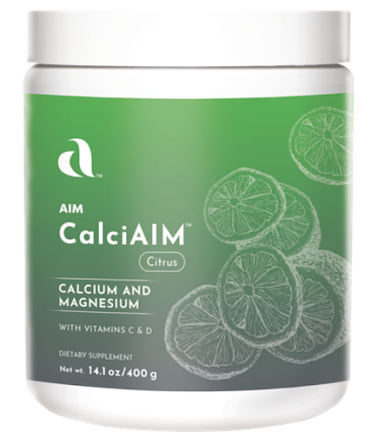What Does Calcium Do For You?

About ninety-nine percent of your calcium resides in your bones and teeth.
The remaining one percent circulates in your blood and carries out the critical function of regulating muscle contraction, heart contraction and nerve function.
Calcium gives you strong bones and prevents osteoporosis. It even lowers blood pressure and can decrease your risk of colon cancer.
Calcium alone, however, is not enough.
Calcium gives you strong bones and prevents osteoporosis. It even lowers blood pressure and can decrease your risk of colon cancer.
Calcium alone, however, is not enough.
Other nutrients, such as magnesium, are needed in order to fully absorb calcium.
That's why fractured, isolated nutrients, usually found in synthetic supplements, may do you more harm than good.
Symptoms of Deficiency: Calcium deficiencies can result in leg cramps, muscle cramps and hemorrhage, since it is essential to blood clotting.
Symptoms of Deficiency: Calcium deficiencies can result in leg cramps, muscle cramps and hemorrhage, since it is essential to blood clotting.
If you do not consume enough dietary calcium, your body will eventually cannibalize the calcium from the bones to maintain calcium levels in the blood.
This leads to porous bones, osteoporosis and even arthritis.
Seventy-five percent of Americans are deficient of this nutrient.
Milk is a good source of calcium, as long as it's from grass-fed cows and contains no hormones or antibiotics. Raw, unpasteurized milk is best, if available.
Dark, leafy green vegetables are also an excellent source of calcium. (From where do you think the grass-fed cows get this nutrient?)
Seventy-five percent of Americans are deficient of this nutrient.
Milk is a good source of calcium, as long as it's from grass-fed cows and contains no hormones or antibiotics. Raw, unpasteurized milk is best, if available.
Dark, leafy green vegetables are also an excellent source of calcium. (From where do you think the grass-fed cows get this nutrient?)
The greener the vegetable, the more nutrition it contains.
For example, though iceburg lettuce is a good source of fiber, it is a poor source of nutrition.
If you don't like veggies, CalciAIM is full of calcium.
Have you had your calcium today?
If you don't like veggies, CalciAIM is full of calcium.
Have you had your calcium today?